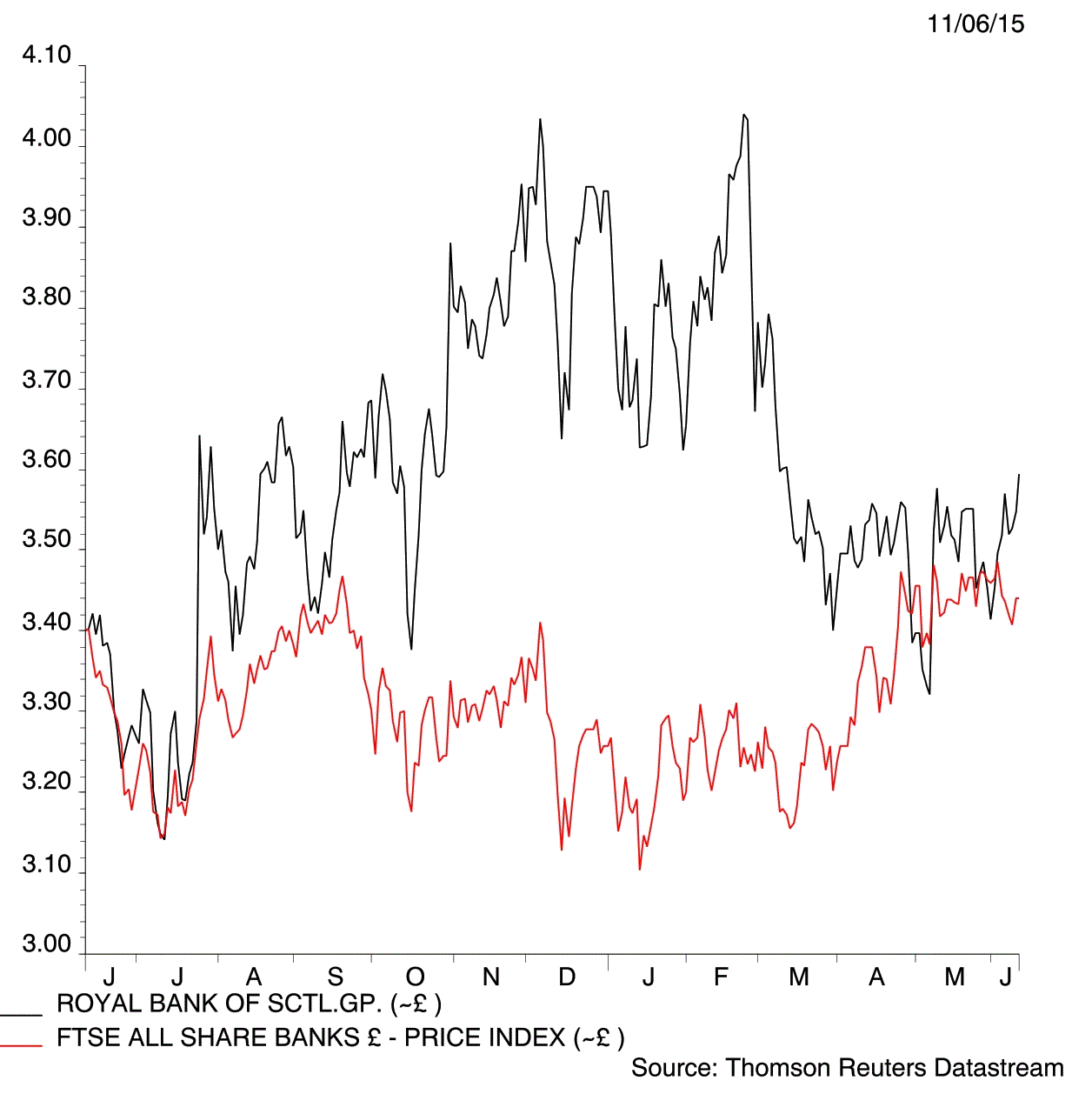George Osborne’s patience has snapped with state-owned lender Royal Bank of Scotland (RBS) and he is willing to sell it at a loss.
The troubled bank trades 1.5% higher to 360.2p after the Chancellor said he is ready to start selling the tax-payers’ stake in the bank within months.
It will take years before the government exits completely and shares will be offered to institutions initially with retail investors getting a look in further down the line. The sale of the government’s remaining stake in Lloyds Banking (LLOY) will be offered to retail investors at a discount and it is hoped that investors get a similar deal for RBS’ shares.
RBS was bailed-out to the tune of £45 billion in 2008, giving the state 80% of the business.
During eight years of state ownership and two chief executives RBS has not made a profit and its value has plummeted. The government’s stake is now worth £33 billion, dwarfing its current £23.1 billion market cap.
Tax payers are set to lose £7.2 billion on the deal, Osborne estimates, when the fees RBS has paid the treasury since the bailout are included.
RBS now trades 28.2% below the 502p a share Gordon Brown paid for it. Brown decided against privatisation when the bank traded at 576p in 2009.
Osborne, which is being advised on the deal by investment bank Rothschild, made the announcement during his annual Mansion House speech the City on Wednesday night. He also signalled the sale of half the government’s remaining 30% stake in Royal Mail (RMG) and reaffirmed its commitment to exiting Lloyds.
Ian Gordon, an analyst at Investec, is bullish on RBS’ recovery but says that the announcement was ‘arguably somewhat premature, dictated more by politics rather than, necessarily, an exercise in optimising market timing’.
CMC Markets’ chief analyst Michael Hewson added: ‘The fact remains it is unlikely that the UK taxpayer will ever get all of its money back, and if anyone thinks otherwise they are inhabiting a different universe to the rest of us, in which case it makes more sense to get the bank back on its feet, off the governments books and to go back to trading as a going concern free of state support contributing to the exchequer that way over the next twenty to thirty years.’




